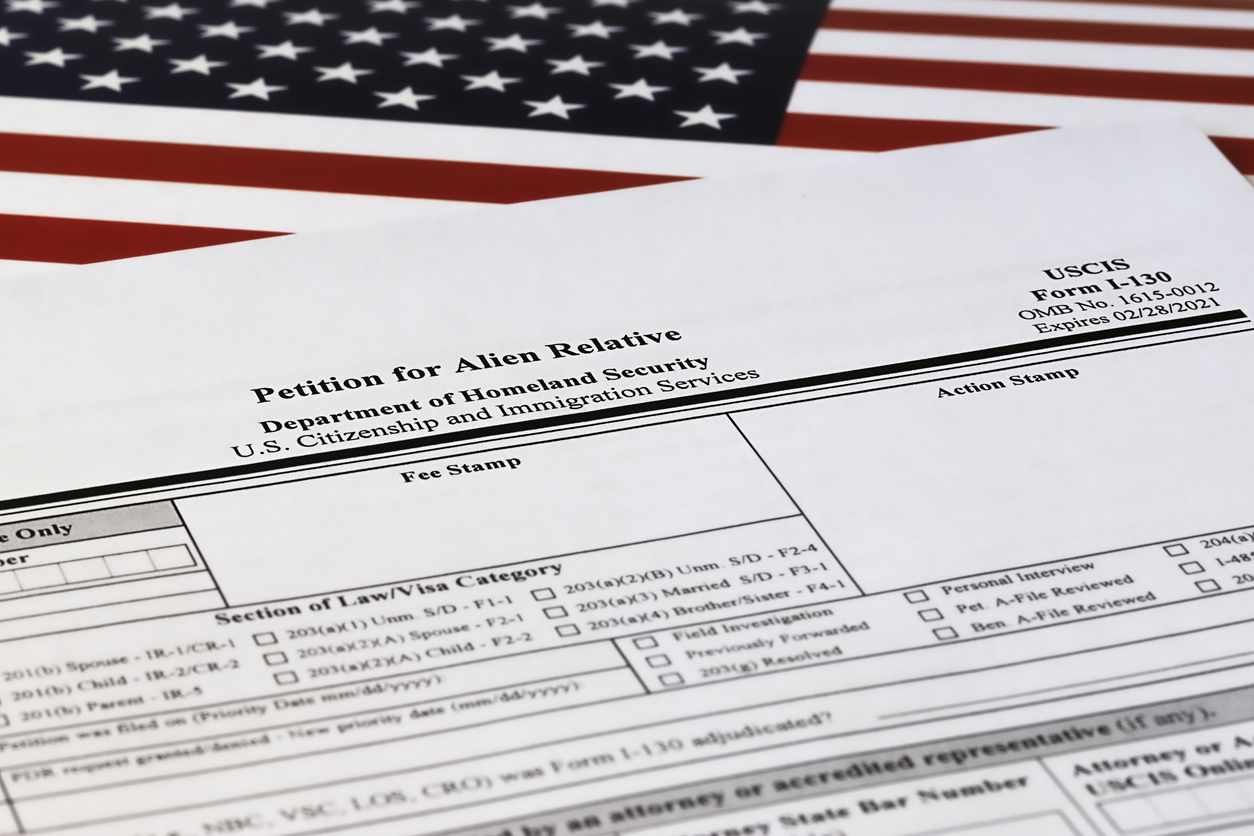
Humanitarian Reinstatement for Family-Based Visas
Unfortunately, in some instances, a family petitioner who sponsored an approved Form I-130, Petition for an Alien Relative, passes away, and the approved petition is automatically revoked, making obtaining a green card more difficult. In such cases, humanitarian reinstatement can restore the approved Form I-130 for the principal beneficiary.
Only the U.S. Citizenship and Immigration Services (USCIS) can make the determination on humanitarian reinstatement. There is no appeal process if your humanitarian reinstatement is denied, meaning you must explore other immigration pathways. That’s why your initial request must be as strong as possible.
Working with an immigration attorney who is well-versed in the humanitarian reinstatement process and eligibility requirements is critical. Our experienced and supportive immigration attorneys understand what USCIS assesses and evaluates in humanitarian reinstatement requests, significantly improving your chances of being reinstated.

Humanitarian Visa Reinstatement Process Explained
Eligibility for Humanitarian Reinstatement Requests
The humanitarian reinstatement process is only available to those who meet specific criteria. Therefore, before starting the process, you must ensure you are eligible.
- You must be the principal beneficiary of an approved Form I-130.
- Your petitioner relative must be deceased.
Derivative beneficiaries of the approved form, such as spouses or unmarried children, cannot request humanitarian reinstatement. That being said, any eligible beneficiary may benefit if your humanitarian reinstatement is approved. An immigration attorney can help you and your family with this process.
If your Form I-130 was pending when the petitioner died, surviving relatives may be able to pursue other routes to relief. Talk to one of our immigration lawyers for more information.
Finding a New Sponsor
To apply for humanitarian reinstatement, you must find a new sponsor. The new petitioner must
- Be a U.S. citizen, national, or lawful permanent resident
- Be at least 18 years old
- Meet the familial relationship requirements (examples include spouse, parent, grandparent, sibling, in-laws, and more)
- Be able to financially support the principal beneficiar
Most family-based preference immigrants must have Form I-864, Affidavit of Support Under Section 213A of the INA (Immigration and Nationality Act). If Form I-864 was required in your initial petition, you need a new Form I-864 from your new sponsor.
Requesting Humanitarian Reinstatement
There is no form or fee to request humanitarian reinstatement. Instead, you must submit a written letter, supporting evidence, and documentation to the USCIS office that initially approved your petition. Your written statement is the key to your humanitarian reinstatement.
Your written request should include the following:
- Your name and the deceased petitioner’s name
- The receipt number of the petition
- Your Alien Registration Number, if you have one
- Your relative’s Alien Registration Number, if they had one
- Your relative’s death certificate
- Form I-864 from your new sponsor
- Strong and supportive evidence that USCIS should grant you humanitarian reinstatement (see below)
Strong and Supportive Evidence for Humanitarian Reinstatement
With humanitarian reinstatement at the discretion of USCIS, an experienced attorney can be vital to this crucial part of your case. USCIS will evaluate whether or not the positive aspects outweigh the negative aspects of your reinstatement. An immigration attorney will be able to present compelling and supportive evidence
The following are some examples of evidence that may be used to support your case:
- The impact and disruption to your family living in the United States
- Age and health concerns of yourself or any derivative relatives
- Lawful residence in the United States for a lengthy period
- Ties to U.S. family members
- Business and employment needs
- Financial impact
- Health or welfare concerns in your home country
- Lengthy government processing
- Any other factors that could lead to reinstatement
Our attorneys can help you craft a statement that puts your request in the most favorable light and ensure that your supporting documents and evidence are powerful and appropriate.
Immigration Lawyer for Humanitarian Visa Reinstatement Cases
An experienced immigration attorney can mean the difference between approval and denial in humanitarian visa reinstatement cases. Due to the discretionary nature of these cases, it is essential to have a skillful attorney who knows how best to present compelling evidence of your case to USCIS.
An experienced attorney can help you navigate the process, gather all necessary documents, and present your case in the best possible light. They can also anticipate and address potential issues, increasing your chances of a successful reinstatement.
The dedicated lawyers of Scott D. Pollock & Associates, P.C. are equipped with extensive knowledge and experience in humanitarian reinstatements. Contact us today to learn more about how we can help with your case.
